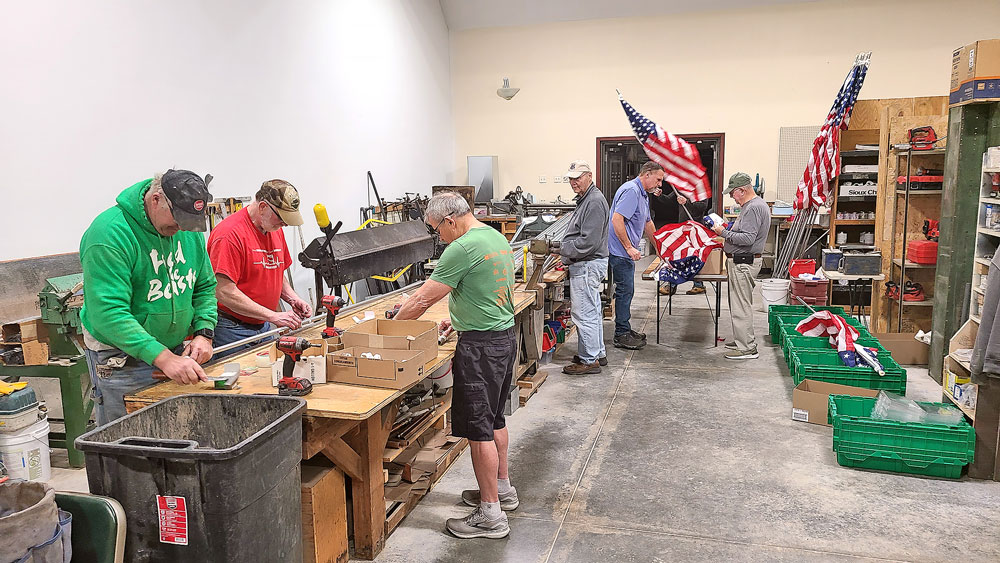SOIL CONSERVATION: Floyd County farmer says no till, strip till have saved him time and money as well as increasing soil health

By Mary Pieper, Special to the Charles City Press
Floyd County farmer Trent Dight caught the no-till bug when he saw his neighbors doing it.
“I just kind of fell in love with it,” he said.
Dight, who farms in Ulster Township west of Charles City, spoke to his neighbors as well as other producers using no till and strip till practices in their fields.
“They were getting just as good of yields as I was while doing less work with a lot less machinery,” he said.
Dight said he “dabbled” with strip till in one field four years ago, and the following year he went “full bore.”
He uses strip till for corn and no till for soybeans.
The soil is healthier than before, according to Dight.
“The soil structure is really coming around now that we have fully switched rather than just running iron through it,” he said.
Microcosms and earthworms are free to do their job in the soil without disruption, according to Dight.
The soil is also “so much nicer to work with,” he said.
In addition, “It doesn’t wash as bad,” Dight said. “We don’t have near the soil and wind erosion. The water disappears faster now than it ever has.”
Dight said he’s “starting to play with cover crops.”
He seeded some of his soybean fields with rye in the fall of 2019. This slowed down the water so he had less soil washout, even after a torrential rainfall on June 9, according to Dight.
One of Dight’s motivations for the switch to no till and stop till was saving money.
“You could see the writing on the wall with the economy,” he said.
Dight’s yields aren’t greater – at least not yet – but he said he’s getting a better return on investment because he doesn’t need as much machinery use or fuel.
Another advantage to no till and strip till is time, according to Dight. He said he can be with his three children now that he doesn’t have to spend so many hours in the field.
Dight said he’s “doing it for the kids” in more ways than one.
He said he wants his land to be in good shape for when it’s passed down to the next generation of the family.
Dight advises those who are thinking about switching to no till and strip till to talk to farmers who are already doing it about what worked for them and what didn’t.
“Don’t be afraid to ask questions,” he said.
Dight also recommends not going full scale right away. He suggested trying no till or strip till on just one field and seeing how it goes before expanding.
“I will take a few years to get it figured out,” he said.
Research is also important, according to Dight. He said during the winter he spends a couple of hours a night reading articles and listening to podcasts about no till and strip till.
Dight also recommends going to field days sponsored by the Natural Resources Conservation Service.
“You always learn something,” he said.








Social Share